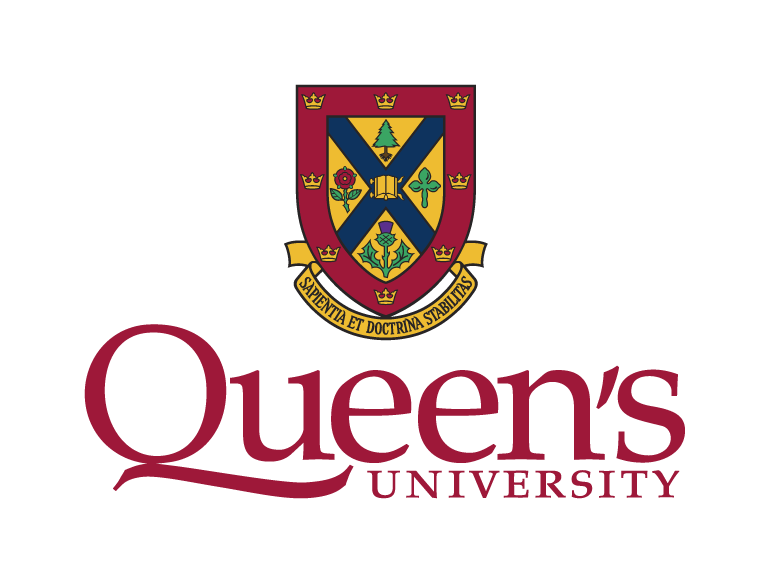Graduate Diploma in Education
Description
Our fully online, part-time Graduate Diploma in Education (GDE) program is designed for educators and other professionals who want to take their career to the next level.
Students have the unique opportunity to focus their graduate learning in a chosen concentration of study and apply that learning to solve problems of practice and effect change in their professional context.
Consisting of only 5 online courses, the GDE program is an excellent way to begin your online graduate studies experience and earn a graduate diploma. Should you decide to continue on after you finish the Graduate Diploma, take an additional 5 courses to earn a Professional Master of Education degree as well.
The GDE program offers a flexible and personalized approach to post-graduate studies in education. All GDE courses run asynchronously online, which means professionals can participate from anywhere in the world without disrupting their busy schedules.
Students enrolled in the GDE program must complete a total of 5 graduate courses, 3 required and 2 elective.
The admission requirements are:
Global Education
In the Global Education concentration, students take an in-depth look at the community and climate of international education. Students completing this specialization gain a greater appreciation for the many voices and stakeholders at play when education attempts to meet the needs of a global community. The courses in this concentration are:
Indigenous Education
PME students also take the following 2 required courses:
PME894 Introduction to Educational Fieldwork (prerequisite for PME 896)
PME896 Capstone (typically the final course in the PME program)
Students have the unique opportunity to focus their graduate learning in a chosen concentration of study and apply that learning to solve problems of practice and effect change in their professional context.
Consisting of only 5 online courses, the GDE program is an excellent way to begin your online graduate studies experience and earn a graduate diploma. Should you decide to continue on after you finish the Graduate Diploma, take an additional 5 courses to earn a Professional Master of Education degree as well.
The GDE program offers a flexible and personalized approach to post-graduate studies in education. All GDE courses run asynchronously online, which means professionals can participate from anywhere in the world without disrupting their busy schedules.
Students enrolled in the GDE program must complete a total of 5 graduate courses, 3 required and 2 elective.
- Courses do not need to be taken in a specific order.
- Courses are 10 weeks in Fall and Winter and 7 weeks in Spring and Summer.
- Courses are approximately 36 hours online and 70-100 hours independently.
- Each course is 3.0 units/credits.
The admission requirements are:
- A baccalaureate degree from a recognized university
- Graduation with a B- graduating average or higher (70% graduating average or a ranking in the top third of the graduating class where number grades are not available)
- Under exceptional circumstances, consideration will be given to highly motivated individuals with relevant field experience who do not meet the B- requirement
- Applicants whose native languages do not include English must obtain a minimum English language requirement of 580 or higher on the paper-based TOEFL exam; 237 Computer-based; 88 on the TOEFL iBT test or IELTS Band 7 or higher.
You may apply to the Graduate Diploma in Education first and then to the Professional Master of Education, or you can apply to the Professional Master of Education directly. In most cases, applicants must apply for admission to the Professional Master of Education within five years after completing the Graduate Diploma in Education.
Required Courses (3)
GDE students choose one of the following concentrations and take all 3 courses in their chosen Concentration:
Assessment & Evaluation
In the Assessment & Evaluation concentration, students explore how various data sources can be used systematically to inform learning and improvement efforts in classrooms, schools, systems, programs, and organizations. Students completing this specialization gain an appreciation of quality assessment and evaluation as the foundation for meaningful evidence-informed decision-making and develop practical skills that can be applied across diverse professional contexts. The courses in this concentration are:
Required Courses (3)
GDE students choose one of the following concentrations and take all 3 courses in their chosen Concentration:
Assessment & Evaluation
In the Assessment & Evaluation concentration, students explore how various data sources can be used systematically to inform learning and improvement efforts in classrooms, schools, systems, programs, and organizations. Students completing this specialization gain an appreciation of quality assessment and evaluation as the foundation for meaningful evidence-informed decision-making and develop practical skills that can be applied across diverse professional contexts. The courses in this concentration are:
- GDE/PME826 Using Classroom and Large-Scale Assessment Data
- GDE/PME827 Planning and Implementing Classroom Assessment
- GDE/PME828 Conducting Quality Program Evaluations
Classroom Specialist
In the Classroom Specialist concentration, students explore and develop innovative curriculum practices intended to support integrated and authentic learning within and beyond the classroom. Students completing this specialization gain a greater appreciation for their role as creators and facilitators of learning experiences as well as the philosophical underpinnings guiding their decision-making practices within the classroom. The courses in this concentration are:
In the Classroom Specialist concentration, students explore and develop innovative curriculum practices intended to support integrated and authentic learning within and beyond the classroom. Students completing this specialization gain a greater appreciation for their role as creators and facilitators of learning experiences as well as the philosophical underpinnings guiding their decision-making practices within the classroom. The courses in this concentration are:
- GDE/PME831 Innovative Curriculum Planning
- GDE/PME832 The Connected Classroom
- GDE/PME833 Supporting Innovative Thinking
Educational Administration
In the Educational Administration concentration, students explore change management in educational organizations and the impacts of funding models, policy, and politics on educational administrators and stakeholders. Students completing this specialization develop an appreciation for evidence-informed administrative decision-making that supports student, institution, and community success and well-being. The courses in this concentration are:
In the Educational Administration concentration, students explore change management in educational organizations and the impacts of funding models, policy, and politics on educational administrators and stakeholders. Students completing this specialization develop an appreciation for evidence-informed administrative decision-making that supports student, institution, and community success and well-being. The courses in this concentration are:
- GDE/PME861 Change Management in Educational Organizations
- GDE/PME862 Finance and Budgeting in Public Service Sectors
- GDE/PME863 Equity-Focused School Leadership
Global Education
In the Global Education concentration, students take an in-depth look at the community and climate of international education. Students completing this specialization gain a greater appreciation for the many voices and stakeholders at play when education attempts to meet the needs of a global community. The courses in this concentration are:
- GDE/PME851 Creating Connection in Culturally Diverse Schools
- GDE/PME852 International Education in a Globalized World
- GDE/PME853 The Business of International Education
Indigenous Education
In the Indigenous Education concentration, students explore Indigenous approaches to education, leadership, and knowledge; the history of Indigenous education policy; models for Indigenous education in Canada; and the diversity of the Indigenous Languages of the Americas. Students completing this specialization gain greater cultural awareness and appreciation, develop an understanding of the need to decolonize pedagogy, adopt policies that build towards education for reconciliation, and acquire Indigenous language teaching methodologies. The courses in this concentration are:
- GDE/PME820 Indigenous Leadership and Knowledge
- GDE/PME821 Policy and Models in Canadian Indigenous Education
- GDE/PME822 Indigenous Languages and Language Teaching
Literacy Education
In the Literacy Education concentration, students explore literacy development theories, components of literacy, and research-based literacy interventions. Students completing this specialization develop an in-depth understanding of the roles and responsibilities of instructional leaders in literacy, how literacy interventions can be implemented to meet a diverse range of student needs, and how the success of these interventions is measured. The courses in this concentration are:
- GDE/PME841 Critical Foundations of Literacy
- GDE/PME842 Literacy Development
- GDE/PME843 Effective Intervention
PME students also take the following 2 required courses:
PME894 Introduction to Educational Fieldwork (prerequisite for PME 896)
PME896 Capstone (typically the final course in the PME program)
- GDE students choose 2 elective courses –
- GDE/PME800 Self-Regulated Inquiry and Learning
- GDE/PME801 Cultivating Creativity
- GDE/PME803 Organizational Leadership (recommended for Educational Administration Concentration)
- GDE/PMEE810 Integrated Planning, Instruction, and Assessment
- GDE/PME811 Innovation in Teaching and Learning
- GDE/PME813 Knowledge Translation and Mobilization
- GDE/PME814* Problem Based Learning (*this course includes synchronous and asynchronous learning activities)
- GDE/PME815 Digital Literacy
Up to 2 courses outside their chosen Concentration (see Required Courses section above)
Note: Check with the institution regarding start/end dates, prices, and delivery method. These may vary according to program, section, and/or semester.
Note: Check with the institution regarding start/end dates, prices, and delivery method. These may vary according to program, section, and/or semester.
Related Courses
- Using Classroom and Large-Scale Assessment Data
- Planning and Implementing Classroom Assessment
- Conducting Quality Program Evaluations
- Innovative Curriculum Planning
- The Connected Classroom
- Supporting Innovative Thinking
- Change Management in Educational Organizations
- Finance and Budgeting in Public Service Sectors
- Equity-Focused School Leadership
- Creating Connection in Culturally Diverse Schools
- International Education in a Globalized World
- The Business of International Education
- Indigenous Leadership and Knowledge
- Policy and Models in Canadian Indigenous Education
- Indigenous Languages and Language Teaching Literacy Education
- Critical Foundations of Literacy
- Literacy Development
- Effective Intervention
- Introduction to Educational Fieldwork
- Capstone
- Digital Literacy
Overview

- Institution: Queen's University
- Program type: Diploma
- Language: English
- Program Code: GDE
- Delivery Method: Fully Online/Distance
Disclaimer:
Check with the institution regarding start/end dates, prices, and delivery method. These may vary according to program, section, and/or semester.
Check with the institution regarding start/end dates, prices, and delivery method. These may vary according to program, section, and/or semester.
